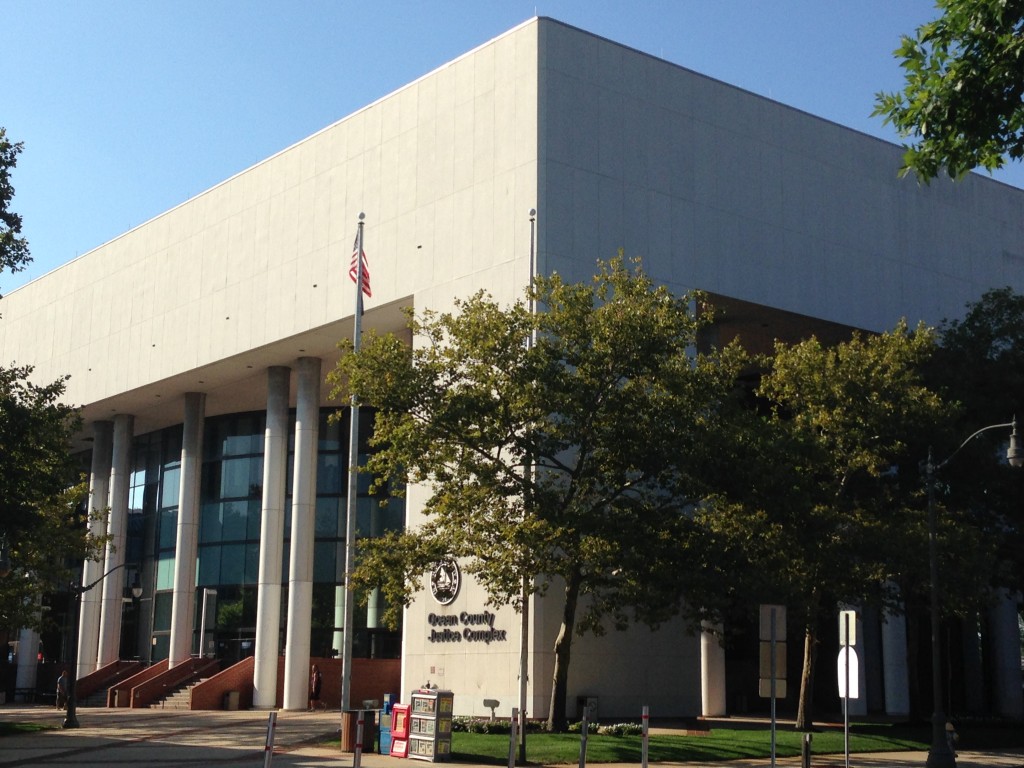Ocean County changed a policy in 2015 that set forth a detailed list of specific offenses for which officers at the Ocean County Jail would honor detainers issued by federal authorities for inmates found to be in the country illegally.
The policy, drawn up in 2015 by newly-appointed Warden Sandra J. Mueller, replaced a policy from a year earlier that earned Ocean County semi-sanctuary status in a report issued by the American Civil Liberties Union’s New Jersey chapter. That policy outlined specific crimes for which Ocean County would fulfill detainer requests from U.S. Immigration and Customs Enforcement (ICE). Suspects charged with offenses that were considered “danger to the person or the community,” such as murder, vehicular homicide, aggravated assault and various sex crimes, would be held for 48 hours on the detainer.
“We do not now, nor have we ever thought of ourselves as a sanctuary county,” said County Administrator Carl Block. “We have no idea how we got on the ACLU’s list.”
The ACLU has lobbied heavily for cities and counties to turn down detainer requests by ICE because they do not constitute an arrest warrant. A federal appeals court in 2014 ruled that detainers are merely requests rather than orders to local law enforcement, essentially making it optional for a local agency to honor them.
After that ruling was handed down, County Attorney Jack Sahradnik helped former warden Theodore Hutler promulgate a county policy on honoring the detainers, which contained the list of offenses. Mueller, in 2015, replaced the policy with a new one which more broadly states that illegal immigrants charged with any first or second degree crime, or any inmate whose offense makes him or her a “removable alien” should prompt jail employees to honor the detainer.
“We are very lucky to have an ICE officer at the jail full time,” said Mueller, during an interview with Shorebeat on the matter. “Their responsibility is to identify the inmates who fall under the priority enforcement program, make sure they have ICE detainers, and if they need to transported to a detention facility, they make that happen.”
According to ICE, under the Priority Enforcement Program, ICE “will seek the transfer of a removable individual when that individual has been convicted of an offense listed under the [Department of Homeland Security] civil immigration enforcement priorities, has intentionally participated in an organized criminal gang to further the illegal activity of the gang, or poses a danger to national security.”
Mueller said ICE determines which inmates fall under the program and should be detained, and the county fulfills all requests.
“I worked with ICE to do a policy to cooperate with their priority enforcement program,” said Mueller.
So-called sanctuary cities and counties – which exercise their legal right to ignore some or all ICE detainer requests – have drawn scrutiny following the recent election of Donald J. Trump as president. Trump has promised to impose penalties on jurisdictions that ignore the requests, potentially withholding federal funding. The 2015 murder of Kate Steinle in San Francisco – a sanctuary city which ignored a detainer request for her alleged killer – also ratcheted up the debate, in part leading the U.S. House of Representatives to approve a bill that would have imposed penalties on sanctuary jurisdictions. Democrats in the U.S. Senate blocked the legislation from making it to President Barack Obama’s desk.
The ACLU has firmly argued against enacting policies or legislation to restrict sanctuary efforts.
“Rather than taking a punitive approach to local law enforcement agencies that are working hard to balance their duties to uphold the Constitution and to keep their communities safe, the Senate should end DHS’s unconstitutional detainer practices, or fix the constitutional deficiencies by requiring judicial warrants for all detainer requests,” the organization said in a statement issued in July.

Advertisement

Ortley Beach & North Beaches
Landmark Ortley Beach Breakfast Spot Looks to Expand

Ortley Beach & North Beaches
‘Temporary’ 70-Foot Cell Tower on Route 35 in Ocean Beach OK’d to Return

Seaside Heights & Seaside Park
Beloved South Seaside Park Restaurant Will Remain Open As Developer Seeks to Demolish Block

Seaside Heights & Seaside Park
In Seaside Heights, A $50M Flagship Building Rises Over the Boulevard in a Famed Location

Police, Fire & Courts
Ocean County Sheriff Establishes Drone Command Center in Seaside Heights Amid New Video






